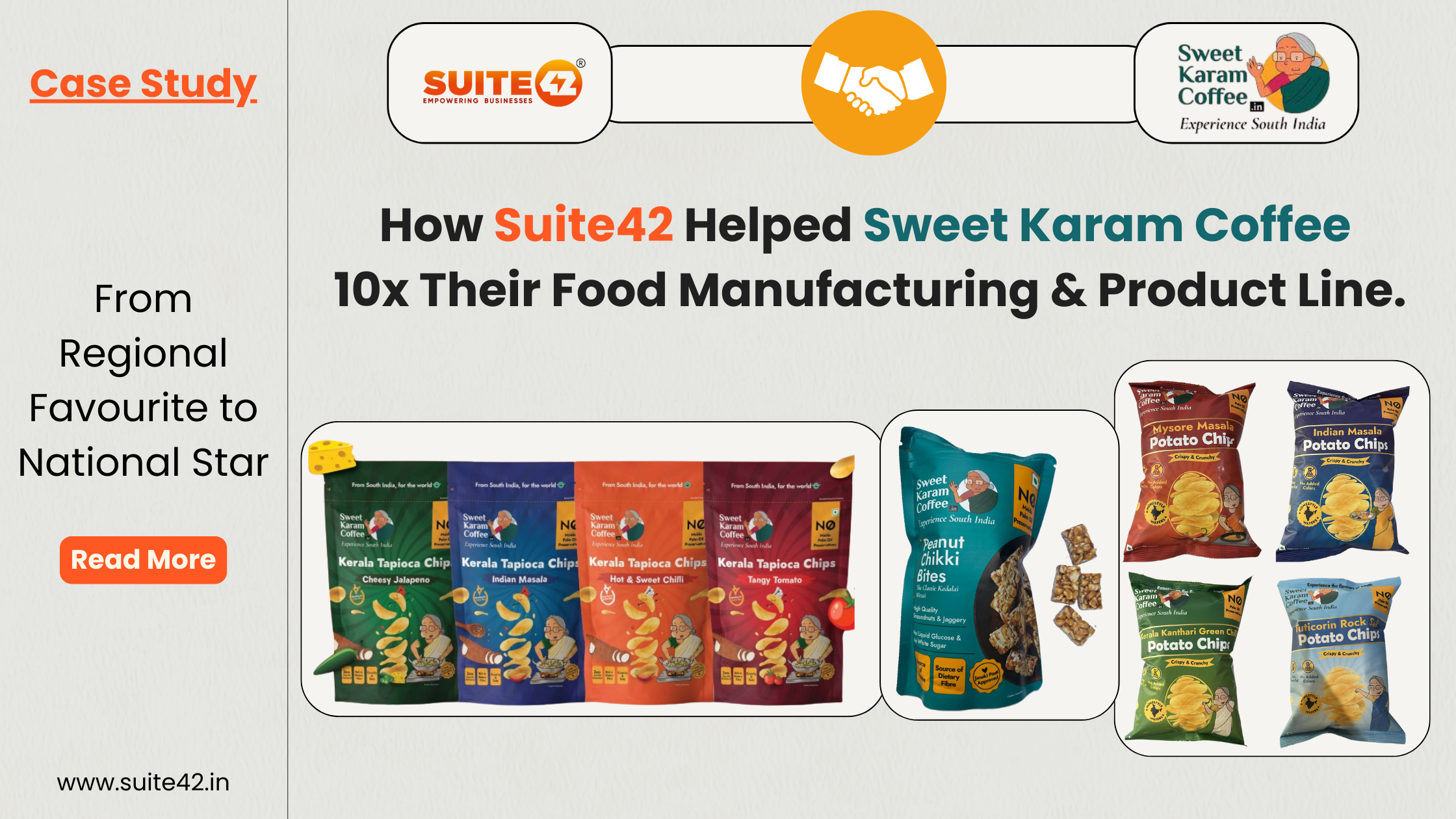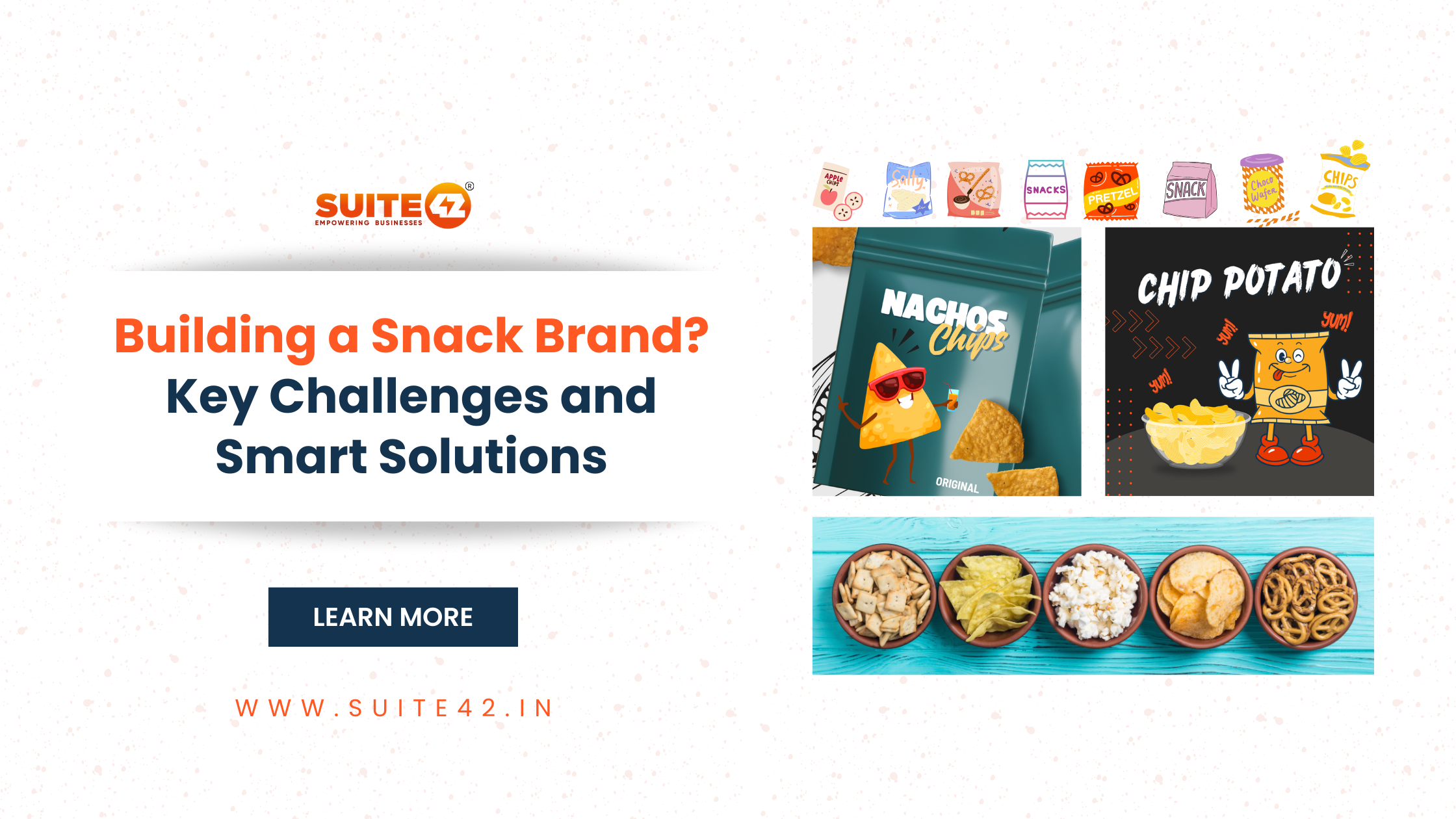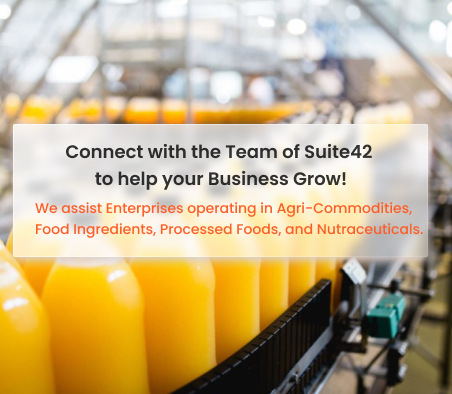
Revolutionize Your Instant Food Business with Contract Manufacturing & Supply Chain Solutions
Introduction
Instant foods have become an integral part of modern diets, offering convenience and speed without compromising taste and quality. As the demand for instant foods continues to grow, businesses in this industry face the challenge of delivering innovative, high-quality products efficiently. This article explores how contract manufacturing and supply chain solutions can revolutionize your instant food business.
What are instant foods?
Instant foods are food products that have undergone processes to make them quick and easy to prepare and consume. These foods are designed to provide convenience to consumers, especially those with busy lifestyles. They come in various forms and categories, each with its own characteristics and preparation methods.
The Instant Food Industry: An Overview & Need for Innovation and Efficiency
The instant food industry encompasses a wide range of products designed for quick and easy preparation, catering to busy lifestyles. These products include ready-to-cook (RTC) and ready-to-eat (RTE) options, as well as frozen, dried, canned, and dehydrated foods.
Consumer preferences are evolving, demanding healthier, more diverse, and sustainable instant food options. To stay competitive, businesses must innovate while maintaining efficiency in production and supply chains.
Types of Instant Foods
1.Ready-to-cook (RTC) foods
RTC foods are partially prepared food items that require minimal cooking or assembly by the consumer.. Their popularity stems from their ability to provide homemade flavors with convenience. These are partially prepared food items that require minimal cooking or assembly by the consumer. RTC foods often come in kits or packages with pre-measured ingredients and simple cooking instructions. Examples include pasta meal kits, stir-fry kits, and pre-marinated meats.
2.Ready-to-eat (RTE) foods
RTE foods are fully prepared and require no additional cooking or preparation. They are typically packaged in containers that are convenient for on-the-go consumption. RTE foods, like pre-packaged meals and snacks, are fully prepared and ready for immediate consumption, catering to on-the-go consumers.
3.Frozen foods
Frozen instant foods are products that have been prepared and then frozen to extend their shelf life. They can include a wide range of items such as frozen dinners, fruits, vegetables, and desserts. These foods are typically heated before consumption.
4.Dried foods
Dried instant foods have had their moisture content removed through drying processes. This preservation method prolongs shelf life and reduces the need for refrigeration. Examples include instant noodles, dried fruits, and powdered drink mixes.
5.Canned foods
Canned instant foods are preserved by sealing them in airtight containers. They have a long shelf life and can be eaten directly from the can or used as ingredients in recipes. Common examples include canned soups, fruits, and vegetables.
6.Dehydrated foods
Dehydrated instant foods are similar to dried foods but are often more thoroughly processed to remove moisture. Dehydrated instant foods, such as powdered drinks and instant coffee, are lightweight, preserving flavors and nutrients.
Categories of Instant Food

1.Meals
Instant meals are designed to provide a complete, satisfying eating experience in one convenient package. They are ideal for individuals with busy schedules or those seeking a quick, balanced meal option. Instant meal options cover a range of cuisines, from pasta and stir-fries to curry and casseroles, offering a quick solution for lunch or dinner.
3.Snacks
Instant snacks are typically small, portable items that are perfect for satisfying cravings between meals. They come in various flavors and textures, catering to different tastes and preferences Instant snacks include chips, popcorn, and snack mix, perfect for satisfying cravings with minimal effort.
3.Breakfast foods
Instant breakfast foods are designed for a quick and easy morning meal. They are favored by individuals who have limited time in the morning but still want a satisfying start to their day Instant breakfast foods like cereals, oatmeal, and breakfast bars are popular morning choices for a fast start to the day.
4.Desserts
Instant desserts offer sweet treats that can be prepared in minutes, making them perfect for satisfying sweet cravings without the need for lengthy baking or preparation. Instant desserts, such as cake mixes and instant puddings, provide a sweet treat without lengthy preparation.
5.Drinks
Instant drink mixes offer quick and convenient beverage solutions for a variety of preferences. Instant drink mixes, from powdered tea to coffee pods, offer a quick and delicious beverage solution.
Understanding Contract Manufacturing Instant Food
Contract manufacturing in the instant food industry refers to the outsourcing of the production of instant food products to a third-party manufacturer. Contract manufacturers typically have the expertise and resources to produce a wide range of instant food products, including ready-to-cook (RTC) foods, ready-to-eat (RTE) foods, frozen foods, dried foods, canned foods, and dehydrated foods.
Contract manufacturing can be a valuable option for instant food companies of all sizes. This partnership streamlines the production process, reduces costs, ensures product quality, and enables brands to focus on other critical aspects of their business, such as marketing and expansion. It’s a collaborative approach that benefits both food brands and contract manufacturers in delivering high-quality instant food products to consumers.
Advantages of Ready-to-Cook (RTC) Contract Manufacturing

- Meeting the Demand for Convenience: RTC contract manufacturing streamlines the preparation process for consumers, making it easier for them to enjoy home-cooked meals.
- Customizing RTC Products: Contract manufacturers can tailor RTC products to meet specific dietary needs, flavors, and packaging requirements.
- Enhancing Product Shelf Life: Through innovative packaging and production processes, RTC contract manufacturing can extend the shelf life of products while maintaining freshness.
- Maintaining Consistent Quality: Experienced contract manufacturers ensure that RTC products maintain consistent quality, adhering to rigorous standards.
- Innovations in RTC Manufacturing: RTC contract manufacturers often introduce innovative techniques and ingredients to create unique and appealing products.
Advantages of Ready-to-Eat (RTE) Contract Manufacturing

- Addressing Busy Lifestyles: RTE contract manufacturing provides consumers with convenient, fully prepared meals that suit their fast-paced lives.
- Meeting Health and Dietary Trends: Contract manufacturers can develop RTE products that align with health-conscious and dietary trend preferences.
- Packaging and Preservation: RTE contract manufacturing focuses on packaging and preservation techniques to maintain product freshness and taste.
- RTE Menu Diversification: Manufacturers can diversify RTE menus to cater to various tastes and preferences.
- Ensuring Food Safety in RTE: Strict food safety protocols are integral to RTE contract manufacturing, ensuring products meet regulatory standards.
Supply Chain Optimization
- Streamlining the Supply Chain: Efficient supply chains are crucial in ensuring instant food products reach consumers quickly and reliably.
- Reducing Lead Times: Optimizing the supply chain reduces lead times, allowing businesses to respond rapidly to market changes.
- Managing Inventory Efficiently: Inventory management strategies help minimize waste and maximize product availability.
- Cost Reduction Through Supply Chain: Efficient supply chains can lead to cost savings through reduced operational expenses
- Data-Driven Supply Chain Solutions: Leveraging data and technology in the supply chain enhances decision-making, making processes more agile and adaptive.
Market Trends and Future Outlook
- The Rise of Functional Instant Foods: Consumers increasingly seek functional instant foods that offer health benefits beyond basic nutrition. Functional instant foods, fortified with vitamins, minerals, and health-boosting ingredients, are gaining popularity.
- Sustainable Practices in Contract Manufacturing: Sustainability is a growing concern. Contract manufacturers are adopting eco-friendly practices, including sustainable sourcing, reduced packaging waste, and energy-efficient production methods.
- Technological Advancements in Food Production: The instant food industry benefits from cutting-edge technologies such as advanced food processing techniques, automation, and robotics, which enhance efficiency and product quality.
- Consumer Preferences Shaping the Industry: Changing consumer preferences, including a demand for organic, non-GMO, and clean-label products, are influencing the development of instant foods.
Challenges and Solutions

- Addressing Supply Chain Disruptions: Supply chain disruptions, such as those experienced during the COVID-19 pandemic, require contingency planning and diversified sourcing strategies.
- Managing Costs in Contract Manufacturing: Balancing cost-effective production with high-quality standards is a constant challenge in contract manufacturing.
- Adapting to Changing Consumer Demands: Staying attuned to evolving consumer tastes and preferences is vital to remain competitive in the dynamic instant food market.
- Regulatory Challenges and Compliance Solutions: Navigating complex food regulations and ensuring compliance with labeling and safety standards can be demanding but is essential for success.
Key Considerations for Choosing a Contract Manufacturer
Defining Your Business Needs
Before engaging with potential contract manufacturers, it’s crucial to have a clear understanding of your instant food business’s specific needs and objectives. Define your product requirements, production volume, target markets, and any unique features or customization you expect. Having a well-defined business plan will guide your selection process.
Assessing Manufacturing Capabilities
Evaluate the manufacturing capabilities of potential contract manufacturers. Consider factors such as their production capacity, technological infrastructure, and experience in producing similar instant food products. Request a tour of their facilities to assess their equipment and resources first hand.
Evaluating Quality Assurance Practices
Quality assurance is fundamental in the food industry. Ensure that the contract manufacturer has robust quality control processes in place. Inquire about their adherence to food safety regulations and certifications, such as Good Manufacturing Practices (GMP) and Hazard Analysis and Critical Control Points (HACCP).
Cost Analysis and Budgeting
Conduct a comprehensive cost analysis to understand the pricing structure offered by contract manufacturers. Analyze production costs, including labor, raw materials, packaging, and overhead expenses. Align your budget with these costs to ensure financial feasibility.
Long-Term Partnerships
Look beyond short-term transactions and seek contract manufacturers interested in establishing long-term partnerships. A collaborative, trust-based relationship can lead to smoother operations, improved product development, and shared growth over time. Discuss your long-term vision and goals with potential partners to gauge their commitment.
Conclusion
Embracing innovation and efficiency in the instant food industry is essential for staying competitive and meeting consumer demands. Contract manufacturing and supply chain solutions offer the means to revolutionize your instant food business, providing the agility and expertise needed to thrive in a dynamic market.
About Suite42: Your Reliable Partner in Instant Food Success

Company Overview
Suite42 is a making its place as a renowned leader in the field of contract manufacturing and supply chain solutions, specializing in the dynamic and fast-growing instant food industry. With a steadfast commitment to innovation, unwavering dedication to quality, and a strong focus on sustainability, Suite42 has become the trusted partner for businesses striving to excel in the world of instant foods. Suite42 is dedicated to helping businesses achieve success in the fast-paced world of instant foods.
Expertise in Contract Manufacturing
Suite42’s team of experts brings extensive knowledge and experience in contract manufacturing, ensuring that your instant food products meet the highest standards of quality and efficiency. Suite42’s contract manufacturing services include:
- Product formulation and development
- Production planning and scheduling
- Sourcing of raw materials and packaging
- Manufacturing and quality control
- Packaging and shipping
Suite42 has the expertise to produce a wide range of instant food products, including:
- Ready-to-cook (RTC) foods
- Ready-to-eat (RTE) foods
- Frozen foods
- Dried foods
- Canned foods
- Dehydrated foods
Supply Chain Solutions
Suite42 offers supply chain solutions designed to streamline operations, reduce costs, and optimize product distribution, ensuring your instant foods reach consumers promptly and reliably.
Collaborative New Product Development
Suite42 collaborates with clients to develop new instant food products, leveraging industry insights and innovation to create offerings that meet evolving consumer preferences and market trends. Suite42’s new product development services include:
- Market research
- Product concept development
- Prototyping and testing
- Launch planning and execution
Suite42 leverages its industry insights and innovation to help clients develop new instant food products that are both marketable and profitable.






I am interested in ready to cook snacks and breakfast